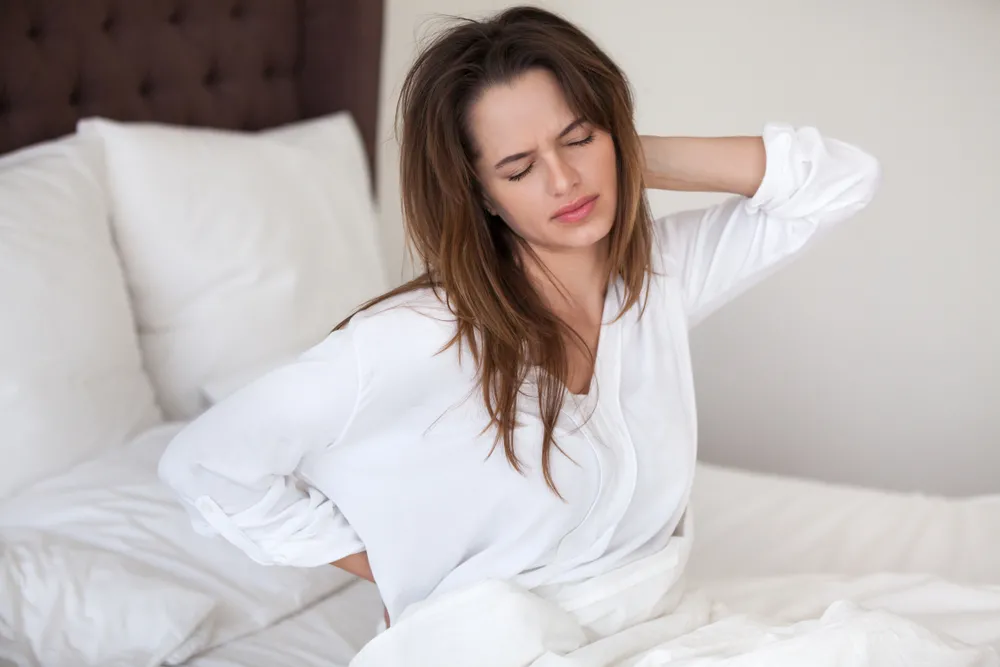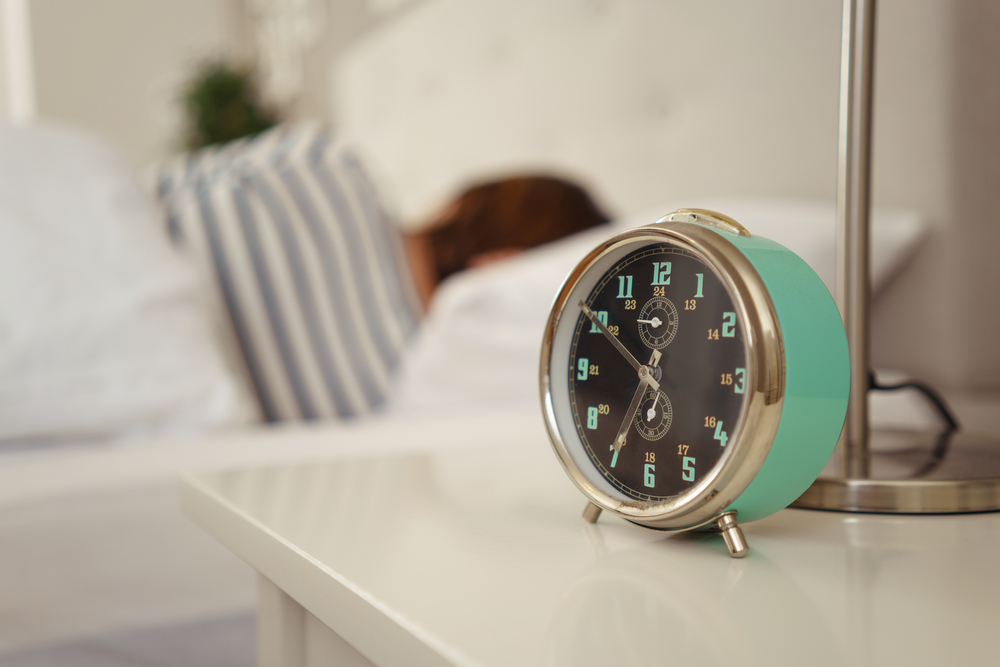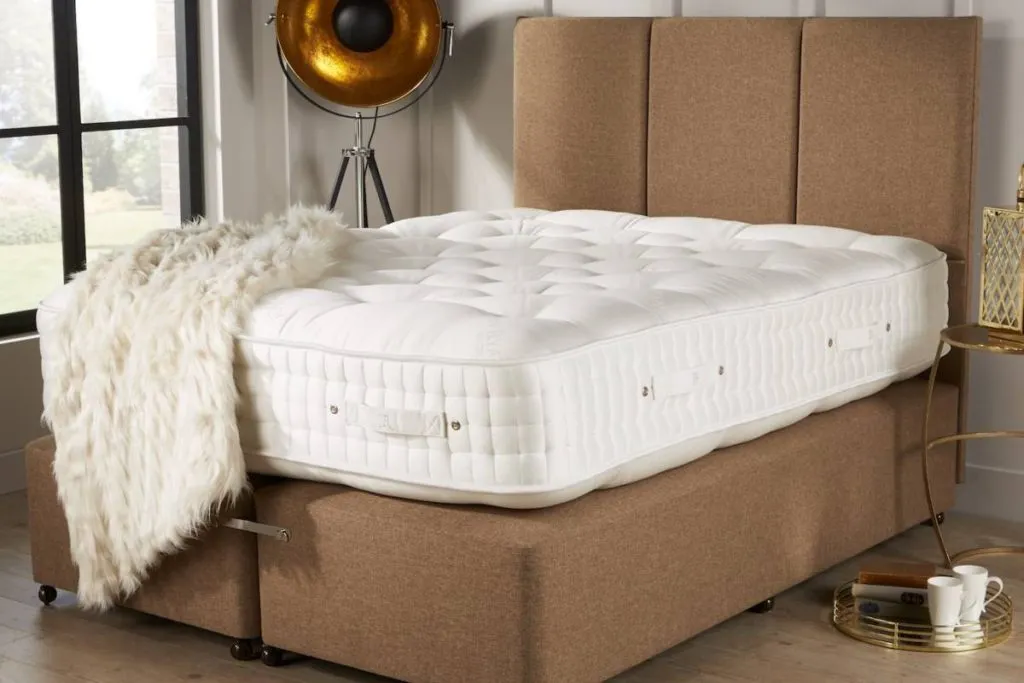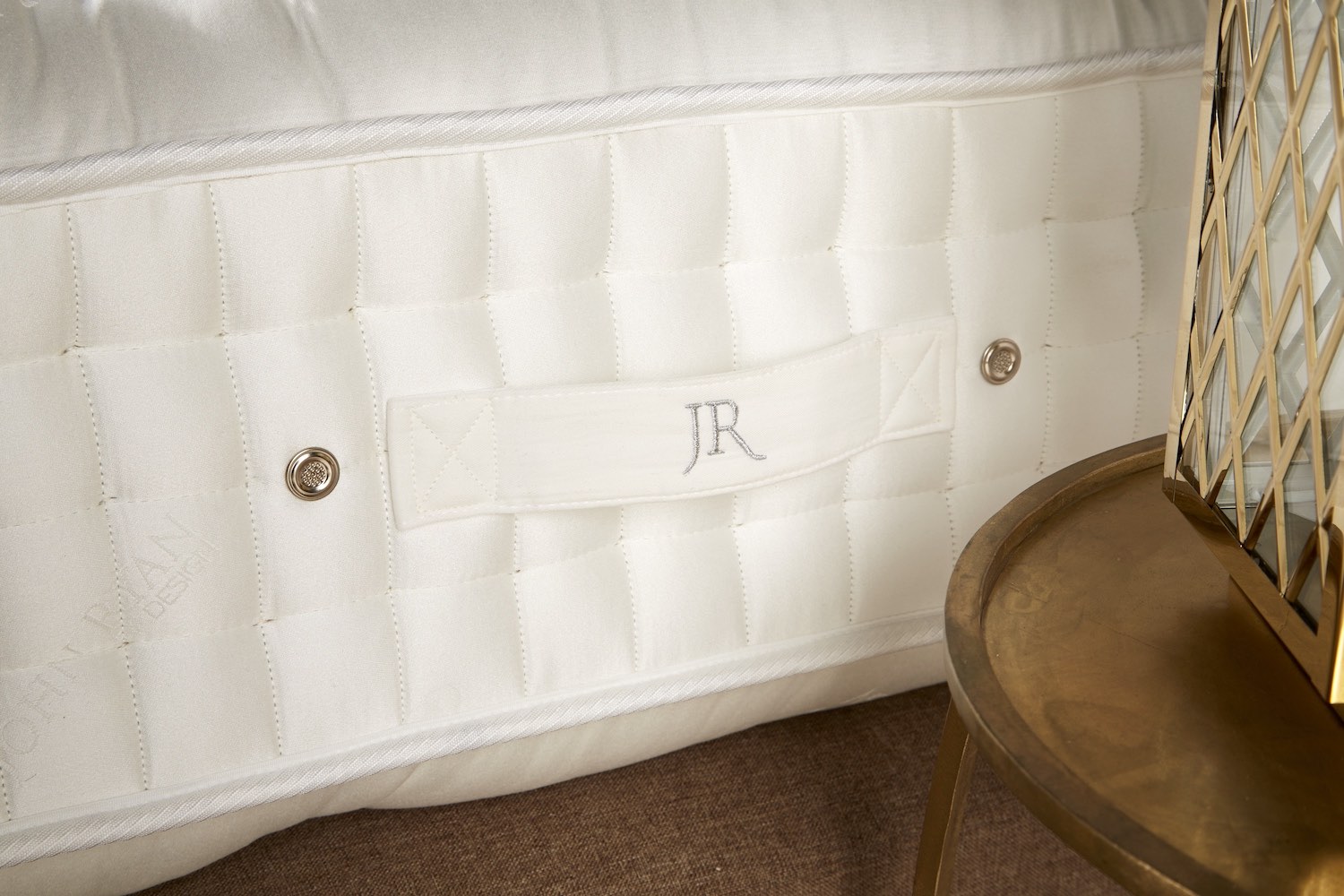Sleep & Well Being
April 2023What’s the best way to get a comfortable night’s sleep?
If you need to give yourself a sleep head start, the following tips and tricks can help you get a better night’s sleep. Nobody wants to constantly toss and turn at night or wake up feeling groggy.

How to get a comfortable night’s sleep tips
You wouldn’t believe it, but even small changes to your bedtime routine and sleep hygiene can help you get a much better night’s rest making life far easier to tackle! Based on our decades of sleep and mattress experience we have listed our top 12 tips to help you sleep for longer and better.
1. Establish a bedtime routine
Having a consistent bedtime routine can help signal to your body that it’s time to sleep. This routine can include things like taking a warm bath, reading a book, or doing some light stretches. 9 times of out 10 this first step will help provide some immediate relief from sleeping badly, it’s the hidden gem of the sleep experts’ world!
Try and aim for 7-9 hours of sleep per night. Sticking to the same time so your body’s circadian rhythms are working with you to help sleep.

2. Keep your bedroom cool and dark
A cool, dark environment can help promote restful sleep. Aim to keep your bedroom at a temperature between 60-67°F (15.6-19.4°C) and use blackout curtains or an eye mask to block out light.

3. Invest in a comfortable mattress and pillows
Your mattress and pillows can greatly impact the quality of your sleep. Make sure your mattress is comfortable and supportive, and that your pillows are the right height and firmness for your sleeping position.
4. Limit screen time before bed
The blue light emitted by electronic devices can interfere with your body’s natural sleep-wake cycle. Aim to avoid using electronic devices for at least an hour before bed.

5. Avoid caffeine and alcohol before bed
Both caffeine and alcohol can interfere with sleep quality. Aim to avoid consuming these substances for at least a few hours before bed.
6. Practice relaxation techniques
Stress and anxiety can interfere with sleep quality. Practising relaxation techniques like deep breathing, meditation, or yoga can help promote relaxation and calmness.
7. Keep a consistent sleep schedule
Keeping a consistent sleep schedule, even on weekends, can help regulate your body’s internal clock and promote restful sleep.

8. Exercise regularly
Regular exercise can help promote restful sleep. However, it’s important to avoid exercising too close to bedtime, as this can interfere with sleep.
9. Keep your bedroom quiet
Noise can disrupt your sleep and prevent you from getting a comfortable night’s sleep. Use earplugs or a white noise machine to help block out external noise.
10. Eat a light dinner
Eating a heavy meal before bed can make it difficult to fall asleep and can cause discomfort during the night. Aim to eat a light dinner a few hours before bed.

11. Use comfortable bedding
Choose bedding that is comfortable and breathable. Cotton sheets and lightweight blankets are a good option for promoting comfortable sleep.
12. Address sleep disorders
If you are experiencing persistent sleep problems, it’s important to speak with your healthcare provider. They can help diagnose and treat any underlying sleep disorders that may be contributing to your discomfort.
Why a comfortable mattress is important?
A good mattress is incredibly important for getting a comfortable and restful night’s sleep. The right mattress can make a significant difference in the quality of your sleep, as well as your overall health and well-being.
When you sleep on a comfortable and supportive mattress, your body is able to fully relax and recover during the night. This can help reduce stress levels, alleviate physical discomfort, and improve your overall mood and energy levels. Additionally, a good mattress can help prevent aches and pains that can develop from sleeping on an unsupportive or uncomfortable surface.

On the other hand, sleeping on an unsupportive or uncomfortable mattress can negatively impact your sleep quality and overall health. If your mattress is too soft, too firm, or doesn’t properly support your body, it can lead to discomfort, pain, and disrupted sleep. Over time, this can lead to chronic pain, fatigue, and other health problems.
How to choose a good mattress
When it comes to choosing a good mattress, there are several factors to consider to help you get the very best nights sleep. Rushing into buying any mattress is always a bad move. It leads to yet more awkward sleep patterns and can be a complete waste of money. Before rushing out make sure you have thought about and worked out the following requirements of your new mattress!
Comfort
The most important factor when it comes to choosing a good mattress is comfort. Look for a mattress that has adequate comfort layers to support for your body. Look for the GSM of the fillings. You ideally want a mattress that has at least 1000gsm of fibre, natural fibre if you can afford them and is two-sided so the bed can be turned to extend the lifespan.
Support
A good mattress should provide support for your body, especially for your spine. A mattress that is too soft or too firm can lead to discomfort and pain. This is usually dictated by the spring in a traditional mattress. Have a look at the correct mattress spring tensomn based on your bodyweight below which will help guide you to the correct mattress support.
| Bodyweight | Spring tension |
|---|---|
| Upto 16 Stone / 50-101kg | Medium (1.4mm) |
| 16 Stone / 101kg Upwards | Firm (1.6mm) |
| Available in Bespoke Products (Please Call) | Soft (1.2mm) |
Durability
A high-quality mattress should be durable and able to withstand regular use for several years without losing its shape or support. Look for high-quality ticking, hand-side stitching and piping. Well-stitched turning handles are also essential for moving, turn and rotate the mattress each month. If a mattress says no turn, then walk away!

Size
Choose a mattress that is the appropriate size for your needs. A mattress that is too small can lead to discomfort and interrupted sleep. The table below shows the minimum room size needed for each mattress.
| Mattress Size | Minimum Bedroom Size (ft) | Minimum Bedroom Size (M) |
|---|---|---|
| Single | 7 feet by 10 feet | 2.1 meters by 3 meters |
| Double | 10 feet by 10 feet | 3 meters by 3 meters |
| King Size | 9 feet by 9 feet | 2.7 meters by 2.7 meters |
| Super King Size | 12 feet by 12 feet | 3.7 meters by 3.7 meters |
| Extra King Size | 12 feet by 12 feet | 3.7 meters by 3.7 meters |
Price
While a high-quality mattress is an investment in your health and well-being, it’s important to choose a mattress that fits within your budget. When you divide the cost of a mattress by how many sleeps you get from it, even our most expensive mattress will be less that £1 a night for the most luxurious sleep in the world!
| Mattress Price Range | Average Retailer Life Span | Cost Per Nights Sleep |
|---|---|---|
| £1000 | 7 years | 0.39p |
| £2000 | 7 years | 0.78p |
| £3000 | 7 years | £1.17 |
Materials
Different types of materials, such as foam, natural fibres, or latex, can offer different benefits for comfort and support. Consider the materials used in the mattress and choose one that best fits your preferences. Think about what materials you would choose for your clothes and why? You wouldn’t choose to be wrapped in foam or polyester on a hot summer’s night! The same goes for mattress fillings.
| Upholstery Layer | Fibre Type | How it will feel? | Price Point |
|---|---|---|---|
| Polyester | Synthetic | Soft | Cheap |
| White Fibre | Synthetic | Soft/Medium | Cheap |
| Recycled Fibre / Eco Fibre | Synthetic | Medium | Cheap |
| Memory Foam | Synthetic | Medium/Firm | Mid Price |
| Igel / Hybrid Foam | Synthetic | Medium/Firm | Mid Price |
| Polycotton | Synthetic/Natural Blend | Soft/Medium | Mid Price |
| Linen | Synthetic/Natural Blend | Medium | Mid Price |
| Wool (Pure) | Natural | Soft/Medium | High-End |
| Cotton (Pure) | Natural | Soft | High-End |
| Silk | Natural | Soft | Expensive |
| Horsehair | Natural | Medium | High-End |
| Mohair | Natural | Medium/Firm | High-End |
| Hemp | Natural | Medium | High-End |
| Latex (100% Natural) | Natural | Medium/Firm | High-End |
| Coir | Natural | Firm | High-End |
| Flax | Natural | Firm | High-End |
| Coarse Cashmere | Natural | Firm | High-End |
| Bamboo | Natural | Super Soft | Expensive / Exclusive |
| Horsetail | Natural | Firm | Expensive / Exclusive |
| Alpaca | Natural | Soft | Expensive / Exclusive |
| Cashmere (Pure) | Natural | Soft | Expensive / Exclusive |
| Vicuna | Natural | Super Soft | Expensive / Exclusive |
Summary
When shopping for a new mattress, it’s important to ensure that the retailer you choose can be trusted and that they have the guarantee of a solid return. Don’t make the mistake of so many and forget to read the small print that leaves you stuck with an expensive mistake. Read about our industry-beating guarantees here.
By prioritizing your sleep and taking steps to create a comfortable sleep environment, you can help ensure that you get the restful and rejuvenating sleep that your body needs to function at its best.
If you need further help in shortlisting suitable new mattresses, give our small expert team a call for free advice on 0161 437 4419.

Dreaming of the perfect nights sleep?

Ask us a question
There are over 6000 questions and answers submitted by you on all questions about mattresses and bed problems. Enter a keyword such as Vi Spring, John Lewis beds, bad back or Memory Foam and see if your question has already been answered.
If you can’t find an answer in knowledge hub, ask a new question. We aim to respond to all questions within one working day.
Newsletter
Enter your email to join our newsletter. We’ll send you occasional news and mattress expertise.
